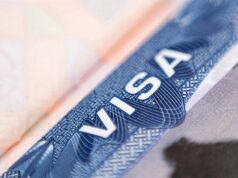The US Food and Drug Administration (FDA) has been told by Donald Trump to see if it can expand the use of an experimental malaria drug, chloroquine, to treat patients in the middle of the U.S. coronavirus outbreak.
At a press conference Thursday, Trump and the head of the FDA gave apparently conflicting comments about the availability of the drug, reports Bloomberg.
Trump said chloroquine had been approved and could be given to patients by doctors with a prescription.
Minutes later, FDA Commissioner Stephen Hahn said that use of the drug would be in a clinical trial to find out whether or not it works, and if so, what dose would safe and effective. An FDA spokesperson said the drug had not been approved for use in Covid-19 patients.
COA FS is not a cure for Coronavirus – Manufacturers
“There is evidence that chloroquine is effective when they looked at SARS in vitro with primate cells,” Dr. Len Horovitz, a pulmonologist and internist at Lenox Hill Hospital in New York City, told ABC News.
“The theory of the experiment with primate cells was that chloroquine could be for preventing viral infection or as a treatment for viral infection after it had occurred.”
The World Health Organization announced Wednesday that it is launching a multicounty clinical trial to test four drugs as potential COVID-19 therapies. Chloroquine is one of the drugs
The other drugs are the antiviral drug remdesivir; a combination of two HIV drugs, lopinavir and ritonavir; and lopinavir and ritonavir plus interferon beta.
All four of the drugs have shown potential to be effective against COVID-19, either in animal studies or in studies done in laboratories. Ten countries have already indicated they will take part in the trial — Argentina, Bahrain, Canada, France, Iran, Norway, South Africa, Spain, Switzerland and Thailand.
How does it work?
People become infected with both SARS and COVID-19 when protein spikes on the surfaces of those viruses bind to special receptors on the outside of human cells.
Chloroquine worked against SARS by interfering with those receptors, thereby interfering with the virus’s ability to bind to cells. Researchers believe there is a chance Chloroquine can do the same against COVID-19.
“The way that it worked against SARS was by preventing of the attachment of the virus to the cells. Chloroquine interfered with the attachment to that receptor on the cell membrane surface,” Horovitz said. “So it’s disrupting a lock and key kind of mechanism of attachment.”
Researchers plan to test chloroquine in health care workers to see if it can help prevent them from getting the virus.
The state-owned Xinhua news agency reported in February that chloroquine was effective against COVID-19 in China. In addition to China, South Korea and Belgium are using chloroquine to treat patients with COVID-19, according to a story from Business Insider.
According to Medscape, chloroquine combined with the antibiotic azithromycin has shown to reduce the amount of virus in patients with COVID-19.























